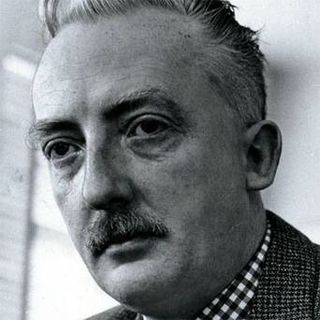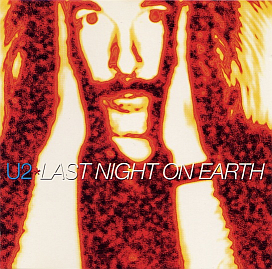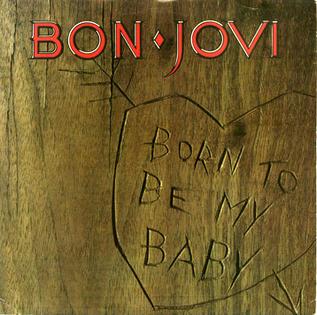"Ireland's Call" is a song by Phil Coulter used as a national anthem by some sports competitors representing the island of Ireland, originally and most notably the men's rugby union team. It was commissioned by the Irish Rugby Football Union (IRFU) for the 1995 World Cup, because a substantial minority, around 20%, of the IRFU's members are from Northern Ireland and the use of the anthem of the Republic of Ireland was considered inappropriate.

Seán Ó Riada was an Irish composer and arranger of Irish traditional music. Through his incorporation of modern and traditional techniques he became the single most influential figure in the revival of Irish traditional music during the 1960s.

"Sometimes You Can't Make It on Your Own" is a song by Irish rock band U2. It is the third track on their eleventh studio album, How to Dismantle an Atomic Bomb (2004), and was released as the album's second single worldwide except in North America on 7 February 2005. Originally titled "Tough", the song is lyrically about the relationship between the band's lead vocalist Bono and his father Bob Hewson, who died of cancer in 2001.
A chorus is the part of a song that is repeated several times, usually after each verse.

"Last Night on Earth" is a song by Irish rock band U2. It is the sixth track on their 1997 album, Pop, and was released by as its third single on 1 July 1997 by Island Records. The song includes excerpts from "Trayra Boia", written by Naná Vasconcelos and Denise Milan. It's music video was directed by Richie Smyth and filmed in the US.

"Gloria" is a song by rock band U2. It is the opening track and second single from the band's 1981 album, October.

"Here Comes the Hotstepper" is a song co-written and recorded by Jamaican dancehall artist Ini Kamoze. It was released on 18 August 1994 by Columbia Records as the lead single from his 1995 album of the same name as well as the soundtrack to the film Prêt-à-Porter. It is known for its "naaaa na na na naaaa..." chorus inspired by the Cannibal and the Headhunters version of "Land of 1000 Dances".

Keening is a traditional form of vocal lament for the dead in the Gaelic Celtic tradition, known to have taken place in Ireland and Scotland. Keening, which can be seen as a form of sean-nós singing, is performed in the Irish and Scottish Gaelic languages.

Proinsias Ó Maonaigh or Francie Mooney was a fiddler from Gweedore, County Donegal, Ireland. He is known for his distinguished fiddle playing and his unique and vast contribution to Irish music and culture. He is the father of Mairéad Ní Mhaonaigh and grandfather of fiddle player Ciarán Ó Maonaigh.

Michael McGlynn is an Irish composer, producer, director, and founder of the vocal ensemble Anúna.
Óró, sé do bheatha abhaile or Óró, sé do bheatha 'bhaile is a traditional Irish song that came to be known as a rebel song in the early twentieth century. Óró is a cheer, whilst sé do bheatha 'bhaile means "you are welcome home".

"At the Hop" is a 1950s pop song written by Artie Singer, John Medora, and David White and originally released by Danny & the Juniors. The song was released in the fall of 1957 and reached number one on the US charts on January 6, 1958, becoming one of the top-selling singles of 1958. "At the Hop" also hit number one on the R&B Best Sellers list. Somewhat more surprisingly, the record reached #3 on the Music Vendor country charts. It was also a big hit elsewhere, which included number 1 for 3 weeks in Canada and a number 3 placing on the UK charts.

"Born to Be My Baby" is a song by American rock band Bon Jovi. It was written by Jon Bon Jovi, Richie Sambora, and Desmond Child. It was released on November 24, 1988 as the second single from their fourth studio album New Jersey. It peaked the following year at number 2 on the Cash BoxTop 100, 3 on the Billboard Hot 100, number 7 on the Mainstream Rock Tracks chart, number 22 in the UK, and number 30 in Australia.
Non-lexical vocables, which may be mixed with meaningful text, are a form of nonsense syllable used in a wide variety of music. Common English examples are "la la la", "na na na" and "da da da".

"Amhrán na bhFiann", called "The Soldier's Song" in English, is the national anthem of the Republic of Ireland, and often regarded by Irish nationalists as the anthem for the island of Ireland. The music was composed by Peadar Kearney and Patrick Heeney, the original English lyrics written by Kearney, and the Irish-language translation, now usually the version heard, by Liam Ó Rinn. The song has three verses, but only the choral refrain is used as the national anthem.

"Cuts Like a Knife" is a song by Canadian rock musician Bryan Adams. It was released in May 1983 as the second single from his third studio album of the same name (1983). It peaked at number 6 on the Billboard Top Rock Tracks chart and number 15 on the Billboard Hot 100. The song has appeared on all of Adams' compilation albums with the exception of The Best of Me.

"Sheela-Na-Gig" is a song by English alternative rock singer-songwriter PJ Harvey, written solely by Harvey. The song was released as the second single from her debut studio album, Dry, in February 1992. The single was the second, and final, single from Dry and only single from the album to enter the charts in both the United Kingdom and United States. An accompanying music video, directed by Maria Mochnacz, was released alongside the single.
"Old Rosin the Beau" is a traditional folk song popular in America, England, Ireland, and Canada, first published in Philadelphia in 1838 though possibly dating back to the 1700s. It is listed in the Roud Folk Song Index as number 1192.

"Making a Fire" is a song by American rock band Foo Fighters, the opening track on their tenth studio album, Medicine at Midnight (2021). It was released to rock radio stations on June 8, 2021, making it the album's fourth single.
"Beidh Aonach Amárach" is an Irish folk song. The song tends to be most popular among children learning to speak, and is taught to people studying Irish Gaelic. The song's author is unclear, but the song traces its roots to the troubadour and trouvère styles, which are generally believed to have started in 12th century France.













